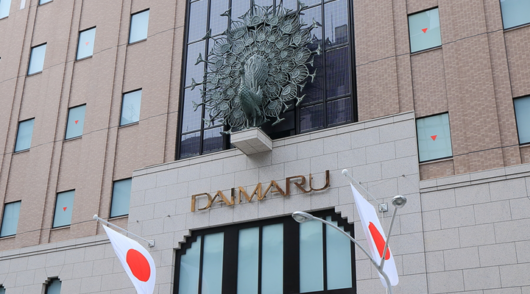The Cheesecake Shop (TCS) is an Aussie icon. Its indulgent cakes have been gracing our birthday parties, anniversaries and other celebrations since 1991. Today, the network of 225-plus franchised stores and head office employs more than 2000 people, and the brand has expanded into New Zealand.
The brand’s success attracted the attention of foreign investors back in 2017, when the founding family saw the opportunity for the cake bakery business to go next level with bigger investment.
At the time, Warwick Konopacki, co-founder and former managing director of TCS, commented: “The time is right for a new owner to take the business and network forward and we very much look forward to seeing the future success of The Cheesecake Shop eclipse that which has been achieved by the team so far.”
Cake changing hands
The buyer was PAG, a multibillion-dollar international investment manager, able to provide TCS with strong financial backing and significant operational experience throughout Asia.
Two years later, PAG Asia also acquired the parent company of Oporto, Red Rooster and Chicken Treat – Craveable Brands.
Early in 2022, PAG sold TCS to Melbourne-based investor River Capital.
So does ultimate ownership matter to franchisees? Some Cheesecake Shop franchisees will have seen the business they operate change hands three times.
Ken Rosebery, managing director at TCS says, “Our franchisees are amazingly disinterested in ultimate ownership, they rarely batted an eyelid when we sold to PAG. They never met anybody from PAG, they deal with me and my team and we stay in place.
“When we announced the news, we told them it’s business as usual.”
As Ken points out, what everybody wants most is to get a return on their investment, from global private equity firms to franchisees to the managing director.
“I’ve rolled my shares over in the business, I’ve got a reasonable shareholding, and I’m running it,” he says.
Meet the new boss
Ken is confident the business made the right choice, rather than taking the long road to listing on the stock exchange, which leads to shorter-term incentives and pressure to perform for the initial public offering.
“We didn’t feel that was as appropriate,” Ken explains. “The management team had choices, multiple buyers were interested, and PAG asked us about which was preferable.”
River Capital is a more medium-term prospect, he says. “We’ve got to make choices about quality and longevity and continuity. River Capital is going to be an excellent shareholder.”
Among those at River Capital is former Domino’s executive Andrew Rennie, who will join the TCS board as chair and an independent shareholder. Andrew has been the Australian-based Domino’s Pizza Enterprises head of European operations.
Josh Ludski, manager – direct investment at River Capital, says, “River Capital and Andrew have a strong relationship spanning the last decade. We’re thrilled to have someone of Andrew’s standing along for this journey with us.
“River Capital and management are committed first and foremost to the long-term success of TCS franchisees, and are excited about supporting franchisees to achieve their long-term ambitions.
“[We have] seen firsthand the positive impact that successful franchise systems can have on the lives of franchisees. TCS has demonstrated this impact over 30 years.”
The brand is one that encourages loyalty and long tenure, from management – Ken has 12 years with TCS, and the financial controller 15 years – to its loyal and established franchisees.
“That’s a tremendous comfort,” Ken says.
An opportunity for a refresh
That’s not to say things are stagnant. Far from it. And new owners bring a welcome fresh perspective, he adds.
“The management team needs a refresh and a review, it’s a good opportunity to see if you can do things better.
“The new owners want the best profitability in the business, but also sustainability, and that’s a great comfort for the franchisees. It’s not just about this year and maximising immediate returns. They’ll support decision-making for profitable franchisees.
“[We’re asking] how can we open more stores, improve sales, what should franchisees be thinking about?
“For us as a management team, it’s business as usual and an opportunity for review and reinvigoration. The strategy is there – a franchise business model about baked in-store celebration cakes.”
So what will they do differently? “There will be no big changes, we won’t centralise baking or stop franchising,” he says.
Instead, the focus will be on boosting the current success – recruiting more franchisees, good marketing, opening more sites, and ensuring compliance and top-quality products and service.
“Can we do it better? Of course we can. These are tactical improvements, ways to do things better,” Ken says.
The business has won a number of accolades, including Australian Established Franchisor of the Year in 2020, its second such award. And in November 2021, TCS received a 5-star franchise rating for its high performance and business transparency.
“I’m proud of the fact we run a good, profitable franchising model, with happy profitable franchisees…and we want new franchisees,” Ken says.
This was originally published in Inside Franchise magazine






